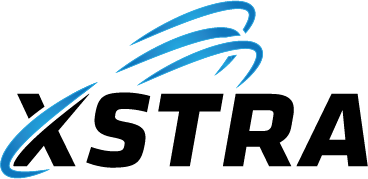VIDEO: SharePoint Document Storage Issues & Alternatives
Summary Of the Most Common SharePoint Issues
- Permissions Issues
- Incorrect or overly restrictive permissions
- Overly complex permission hierarchies
- Broken permission inheritance
- Inconsistent permission levels across libraries and sites
- Difficult-to-manage external sharing
- Syncing Issues
- OneDrive sync problems
- Delayed or broken syncing
- File locking issues
- Multiple version conflicts
- Outdated file versions syncing
- Document Management Issues
- Duplicate file uploads
- Document checkout issues
- Accidental deletion
- Metadata mismanagement
- Broken document workflows
- Risks of Storing Data in a Public Cloud
- Public cloud platforms, while convenient, may be more exposed than private, on-premise solutions. Even with strong encryption, they can be targets for breaches and unauthorized access.
- Data in public clouds (e.g., SharePoint Online) can be at risk from third-party access, insider threats, or attacks on large providers.
- Under Microsoft’s Shared Responsibility Model, Microsoft secures the infrastructure; customers must secure and protect their own data (backups, access controls).
- Microsoft recommends using a third-party backup solution for SharePoint, OneDrive, and Exchange Online; built-in versioning/recycle bins are not full DR or long-term archive.
- Follow the 3-2-1 backup principle—three copies, two media types, one offsite—often achieved with third-party tools.
- IP rights: you retain ownership of your data; Microsoft processes it to provide services but does not claim ownership.
- Performance Issues
- Slow page loads
- Search indexing delays
- List view threshold issues
- Search not returning results
- Inefficient database management
- Navigation Problems
- Confusing navigation
- Broken or outdated links
- Inconsistent user experience across sites
- Overly complex folder structures
- Versioning Issues
- Confusion about version control
- Document versions lost
- Unwanted version history clutter
- File Size and Storage Limits
- File size limitations
- Storage quota limits
- Insufficient storage allocation
- Backup limitations
- Collaboration Problems
- Simultaneous editing conflicts
- File locking during collaboration
- Document merging issues
- Unclear ownership and responsibility
- Unreliable notifications or alerts
- Customization and Integration Challenges
- Custom scripts and workflows failing
- Incompatible third-party add-ins
- Complex SharePoint Designer customizations
- Office 365 integration issues
- Mobile Compatibility
- Poor mobile rendering
- Limited mobile editing
- Lack of responsive design
- Search and Indexing Issues
- Delayed search indexing
- Inaccurate search results
- Custom search scope problems
- Search performance issues
- User Adoption and Training
- Steep learning curve
- Lack of proper training
- Reluctance to use metadata
- List and Library Issues
- Threshold limits exceeded
- Large list performance
- Custom columns or content types not working
- Backup and Recovery Problems
- Deleted files not recoverable
- Restore point confusion
- No access to second-stage Recycle Bin
- Compliance and Governance Issues
- Insufficient document retention policies
- Version history misuse
- Governance issues with content types and metadata
- Workflow and Automation Failures
- Workflow errors
- Complex workflow management
- Automation conflicts
- Security Concerns
- Unauthorized access to sensitive documents
- External sharing risks
- Data leakage through personal cloud accounts
- Insufficient auditing
- Site Collection Management
- Overly complex site structures
- Unorganized site templates
- Content roll-up issues
- Data Migration Issues
- Migration challenges
- Broken links during migration
- Metadata loss during migration
Summary
Each organization’s needs are unique, but it’s important to recognize that SharePoint’s strongest benefit is collaboration on Word, Excel, and PowerPoint files. Beyond this, a purpose-built file server often provides more secure and reliable permanent access to files. Alternatives that address SharePoint’s limitations should be carefully evaluated to ensure the best fit for your organization’s strategy and workflows.
Need more help with this?
© 2021–2026 XSTRA Group Pty Ltd (Australia). All rights reserved.


